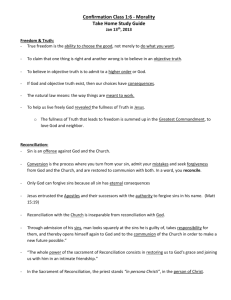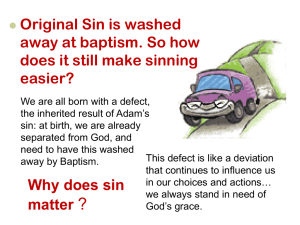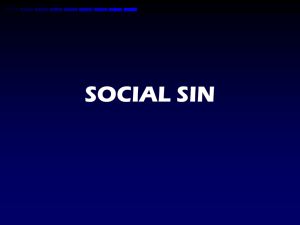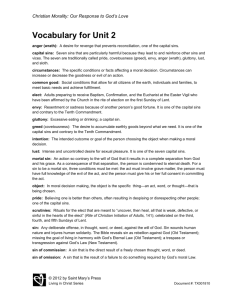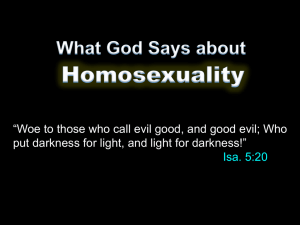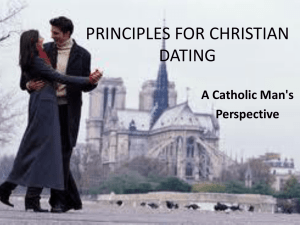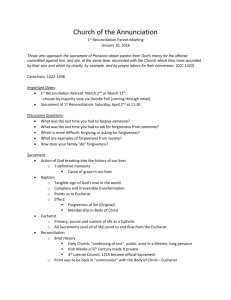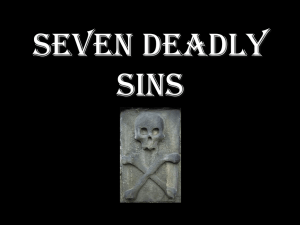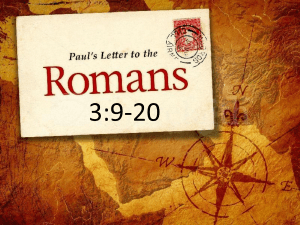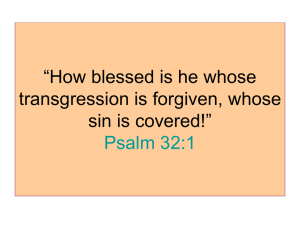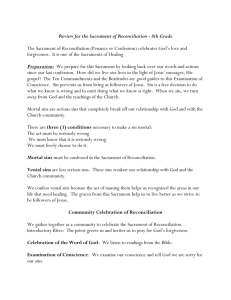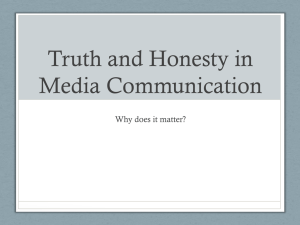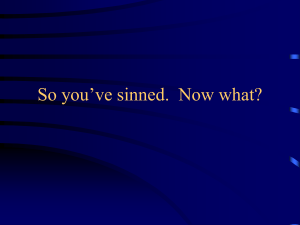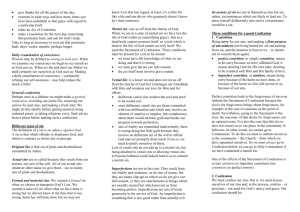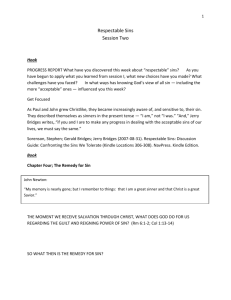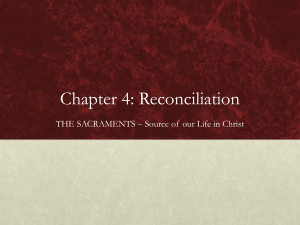Sacrament of Reconciliation
advertisement
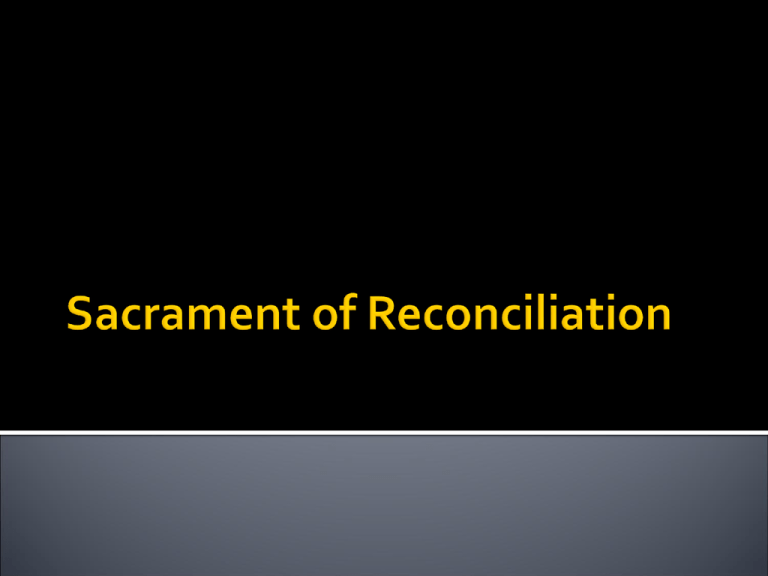
Stage 1: Alienation from Self, God, Family or Community Through Ignorance or Blindness Stage 2: Awareness Other names for this: Raising of Conscience Coming to our Senses Waking up Hitting Bottom “ I have sinned:” Sacramental Moment Stage 3: Conversion “turning around” change of heart Metanoia “think again” Stage 4: Contrition Sorrow for doing wrong Stage 5: Reconciliation with Self, God, Family, or Community The Prodigal Son, Rembrandt The Rite of Reconciliation Confession—words acknowledging sinfulness Act of Contrition—words expressing sorrow Penance— action demonstrating repentance of the sinner Absolution—pronouncement of God’s forgiveness of sins What is a sin? Any action that alienates or cuts us off from ourselves, others, and God. Two main types of sin Mortal sin Venial sin Mortal (or Serious) sin A very grave or serious violation of God’s law done willingly and knowingly. Cuts us off completely from God. Can only be forgiven through the Sacrament of Reconciliation Venial sin? Venial means “forgivable.” A less serious offense Weakens our relationship with God, but does not cut us off. Can be forgiven through any Sacrament, as long as there is true contrition for one’s sins. Reconciliation, Anointing, Eucharist, all have the power to forgive a venial sin Sin of Commission vs. Sin of Omission A sin of commission is doing something sinful; an action. A sin of omission is NOT doing something you could have done, usually for someone’s good; a lack of action. Biblical example: the two men who passed by the beaten man in the story of Good Samaritan. Modern example: passing by a homeless person without offering to help in some way. Personal Sin vs. Social Sin Personal sin is an individual act of wrongdoing Social sin is the wrongdoing of an entire community, usually against the common good. Prophets make us aware of our social sin Biblical examples: The prophets of the Hebrew Scriptures; John the Baptist; Jesus—all openly challenged the social sins of their leaders Modern Examples: Sins in the economy (homelessness, Wall Street greed) Sins against humanity (genocide, racism, Katrina victims) MLK Jr., Elie Wiesel—modern-day prophets Social Sin in the Church Sexual Abuse, cover-up of abuse Anti-Semitism, Anti-Islamism Social Sin at SMCHS? Bullying? Racism, Homophobia, Classism, Sexism, Cheating? Originally a list of mortal sins Better understood today as underlying attitudes that can lead to sinful behavior if left unchecked Lust: excessive sexual thoughts Gluttony: overindulgence to the point of waste Greed: excessive acquisition of wealth Sloth: excessive indifference, failure to act Wrath: uncontrolled anger or hatred Envy: excessive desire of what another has Pride: excessive love of self (considered the worst of the Seven Deadly Sins because it leads to the others!)
